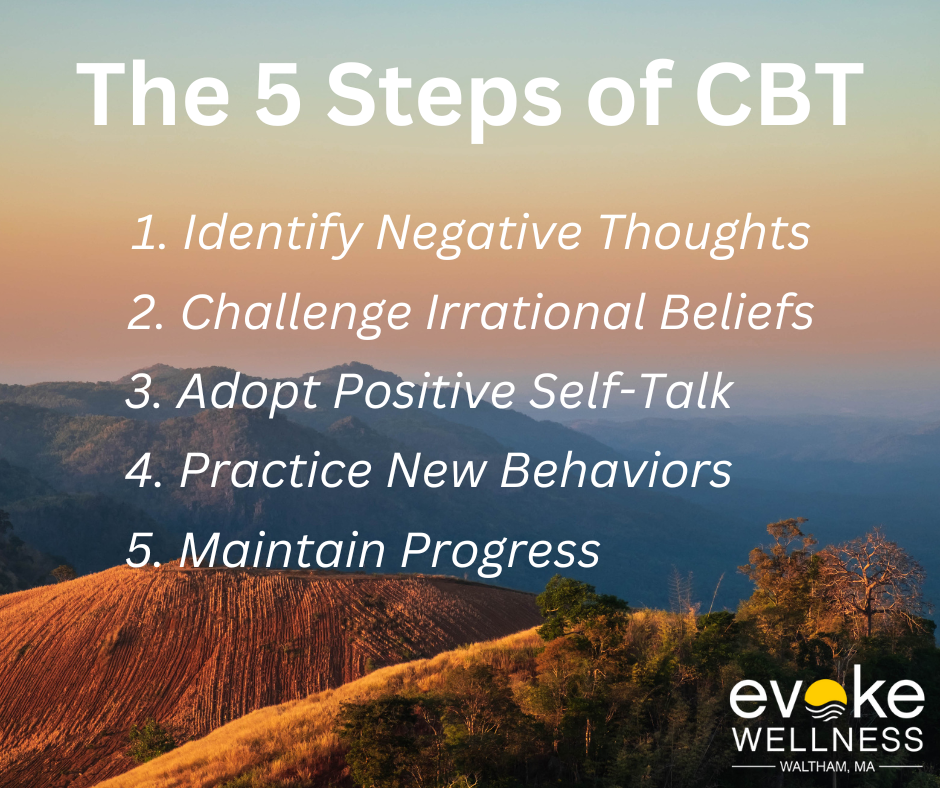Are you struggling with substance abuse and looking for an effective treatment approach? Cognitive Behavioral Therapy (CBT) might be the answer you’re seeking. This powerful therapeutic technique has proven highly successful in treating addiction and co-occurring mental health disorders. By addressing the underlying thought patterns and behaviors that fuel substance abuse, CBT empowers you to make lasting changes. In this article, we’ll explore:
- How CBT works for addiction treatment
- The benefits of CBT for dual diagnosis
- Integrating CBT with other mental health treatments
You’ll discover why CBT is a cornerstone of modern substance abuse treatment and how it can help you reclaim control of your life.
Call us at (833) 287-7223 today or reach out online.
The Role of Cognitive Behavioral Therapy (CBT) in Treating Substance Abuse and Co-Occurring Disorders
Understanding the Connection
Substance abuse and mental health issues often go hand-in-hand, with one exacerbating the other in a vicious cycle. CBT helps you recognize the thought patterns and behaviors that contribute to your addiction and co-occurring disorders like depression or anxiety.
Addressing Root Causes
Through CBT, you’ll learn to identify and challenge the negative thoughts and beliefs driving your substance abuse. You’ll also develop coping strategies to manage cravings, high-risk situations, and mental health symptoms more effectively.
Dual Diagnosis Treatment
For those with co-occurring substance use and mental health disorders (dual diagnosis), CBT is an essential part of an integrated treatment plan. It addresses both issues simultaneously, improving outcomes and reducing relapse risk.
Lasting Change
By modifying deeply ingrained thinking and behavior patterns, CBT equips you with tools for lifelong recovery. As you practice new coping mechanisms, positive habits replace the harmful ones fueling your addictive and mental health struggles.
What is Cognitive Behavioral Therapy (CBT)?
The CBT Basics
Cognitive behavioral therapy (CBT) is a form of psychotherapy that focuses on modifying negative thought patterns and behaviors to improve mental health and coping mechanisms. It is based on the core principle that our thoughts, emotions, and actions are interconnected.
Identifying Negative Thinking
A key aspect of CBT is identifying distorted or irrational thought patterns that contribute to unhelpful behaviors. Common examples include all-or-nothing thinking, overgeneralization, and catastrophizing.
Replacing Unhealthy Patterns
Through CBT, you learn to replace these negative thought cycles with more balanced, realistic perspectives. This allows you to develop healthier coping strategies and change self-destructive behaviors – like substance abuse.
CBT Techniques
CBT incorporates various techniques like cognitive restructuring, exposure therapy, relaxation training, and skill-building. The goal is to equip you with the tools to manage difficult situations without resorting to substance use or other harmful behaviors.
Dual Diagnosis Treatment
For those with co-occurring substance use and mental health disorders (dual diagnosis), CBT is an effective treatment approach. It addresses the psychological root causes fueling addictive behaviors while managing mental health symptoms.
What Does a Cognitive-Behavioral Therapist Do?
Assessing the Client’s State
In cognitive-behavioral therapy (CBT) for substance abuse treatment, the therapist first aims to understand your current thoughts, emotions, and behaviors related to substance use. Through open discussions and assessments, they identify self-destructive patterns fueling the addiction cycle.
Developing a Personalized Plan
Based on this assessment, the CBT therapist collaborates with you to develop a structured treatment plan. This plan outlines specific goals and strategies tailored to your unique needs, challenges, and readiness for change. Common elements include:
- Recognizing and reframing negative thought patterns
- Building coping skills to manage cravings and high-risk situations
- Practicing relaxation techniques to reduce stress and anxiety
Empowering Positive Change
Throughout the therapy process, the CBT therapist serves as a supportive guide. They provide you with evidence-based tools, teach practical skills, and assign homework to reinforce progress between sessions. The ultimate aim is empowering you to make lasting, positive changes in your thoughts and behaviors.
For those with co-occurring mental health conditions like depression or anxiety, CBT is often integrated into a comprehensive dual diagnosis treatment plan. By addressing both substance abuse and mental health simultaneously, the chances for full recovery are greatly increased.
The 5 Steps of CBT
1. Identify Negative Thoughts
The first step involves recognizing negative or distorted thought patterns. These can include all-or-nothing thinking, overgeneralization, and negative self-talk related to substance abuse. Identifying these thoughts is crucial for changing harmful behaviors.
2. Challenge Irrational Beliefs
Once negative thoughts are identified, you’ll learn to challenge and evaluate their validity. This involves questioning the evidence supporting those beliefs and considering alternative perspectives. Cognitive restructuring helps replace irrational thoughts with more balanced views.
3. Adopt Positive Self-Talk
The next step focuses on replacing negative self-talk with more realistic and positive thoughts. This could involve affirmations, imagery, or coping statements that counter cravings or urges to use substances. Positive self-talk empowers you to make healthier choices.
4. Practice New Behaviors
CBT also emphasizes developing new coping skills and practicing desired behaviors. Role-playing, relaxation techniques, and lifestyle changes reinforce more positive patterns. As negative thoughts decrease, you’ll find it easier to maintain sobriety.
5. Maintain Progress
The final step focuses on strategies to sustain recovery and prevent relapse. Continuing CBT skills, building a support network, and having a relapse prevention plan promote lasting change. With practice, healthier thinking becomes a way of life.
CBT Coping Skills
Cognitive Behavioral Therapy (CBT) equips you with valuable coping mechanisms to manage substance abuse and co-occurring disorders. These skills empower you to:
Identify Triggers
- Recognize situations, thoughts, or emotions that trigger substance cravings or unhealthy behaviors.
- Develop self-awareness to catch these triggers early.
Challenge Negative Thoughts
- Question irrational beliefs fueling addictive patterns.
- Replace self-destructive thoughts with more balanced perspectives.
Manage Emotions
- Practice mindfulness techniques to process difficult emotions healthily.
- Learn relaxation strategies to cope with stress and anxiety.
Prevent Relapse
- Develop a relapse prevention plan with alternative coping strategies.
- Build a supportive network to maintain motivation and accountability.
Mastering these CBT coping skills allows you to take control, overcome unhealthy impulses, and create lasting, positive change in your life.
Conclusion
In conclusion, Cognitive Behavioral Therapy plays a crucial role in treating substance abuse and co-occurring disorders. As you’ve learned, CBT:
- Helps you identify and change negative thought patterns
- Teaches coping skills to manage cravings and triggers
- Addresses underlying mental health issues in dual diagnosis treatment
By integrating CBT into your recovery journey, you’re equipping yourself with powerful tools to overcome addiction and improve your mental health. Remember, healing is a process, and CBT provides a structured approach to guide you through it. Whether you’re dealing with substance abuse alone or a dual diagnosis, CBT can be tailored to meet your unique needs. Embrace this evidence-based therapy as a cornerstone of your treatment plan, and take confident steps towards a healthier, more fulfilling life.
Begin Your Journey with Evoke Wellness at Waltham
If you or a loved one is considering outpatient treatment, Evoke Wellness at Waltham invites you to contact us. Our compassionate team is ready to answer your questions, discuss your needs, and help you take the first steps toward recovery. At Evoke Wellness, you will find more than just a treatment program – you’ll discover a community dedicated to your wellness and success. Together, let’s embrace the journey to recovery and the promise of a new beginning. Call us at (833) 287-7223 today or reach out online.



